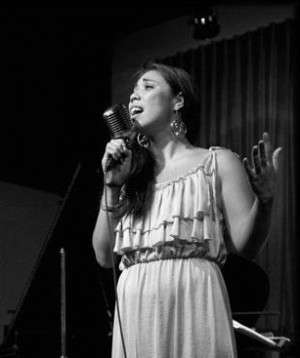Jazz Bird Flying High
Young spent her time co-teaching the gallery 37 songwriting and producing program along with Justin Butler. Butler is a Chicago solo vocalist and 2005 winner of Chicago Idol who has provided vocals for Mariah Carey and Diana Ross, in addition to opening up for musicians such as Boyz II Men.
“Students come in for auditions, they can either be singers, rappers or spoken word, but they have to want to write songs and perform it,” Young says. “We picked around 20 students, and for the first four weeks we would talk to them about songwriting. I would teach them basic music theory skills. Then, the last four weeks, we had this relationship with a studio in the South Loop [area of Chicago] that we would go to and record their songs.”
In addition to enhancing creativity skills, Young also addressed the importance of building teamwork skills with her students. They were broken into groups where they had to write a song together, which can be a challenging task, particularly for artists. Young alludes to the stereotypical diva-like attitudes that grace many a musician and emphasizes that her teaching techniques tried to dissuade her students from such behavior.
The program culminated in a performance at The Chicago Theatre after four weeks of intense culturing and learning of how to make an album, recording and taking photos, as well as studying some of the inner workings of the music business.
Young fondly remembers another great music experience in her life. Perhaps absent of a Quincy Jones type, but complete with the same feeling of highness. While attending Indiana University, she was a singer in the all-girl gospel group, Sojourner. And just like she had made an unforgettable impact and difference in various students’ lives, so too did her professor, who played a part in making her the singer she is in the present day.
“[The teacher] really made an emphasis on emoting through the music and how you can connect with people,” Young says of the impact the teacher and her singing mates had on her musical outlook. Relating and connecting to the words in a song and the notes on the page is a major part of her philosophy as a musician. Young also says much of what they performed was acapella and versions of other songs, “We did one performance out in Harlem, N.Y. at a high school, and I remember singing out there with them and being immersed in harmony.”
Connection and emotion, this is what seems most important to Young when it comes to music, whether writing, singing, or playing. Sometimes with the battle between the young tykes and the more seasoned bigwigs, there can be a discord between schools of thought. The concepts of recognizing and understanding the history and journey of music, how that relates to the present, and, embracing the evolution of that history, can sometimes be pushed to the wayside. It is change versus tradition.
Young understands both sides, however, for her, to know the history and background of an artist is more than just an appreciation for the musician; she finds it fascinating and thought-provoking as well as a way to create deeper relationships between that artist and a person’s craft.
She says, “There’s lots of different ways to think about your art. There are some definite jazz elitists that even in 2012 hate any other type of music. There’s something respectable about it because that’s your passion. Then there are also young people who don’t want to know about it, because they don’t care or they want to create their own thing that, yes, is probably going to be influenced by the history of American music. I can see that side of it too; they want to start their own thing and they don’t want it to be something older. But for me, I think that it’s important to really know, [in regard to] music specifically, all that I can about different styles.”
Young expresses that the idea behind educating oneself about an artist and their particular story is “on the bigger scale of being human and interacting with people.” For her, the more you know about an artist and where they come from, the more things become personal for the listener; a barrier is broken between the individual and the artist. It also seems that it is a way to delve deeper into understanding a person’s art better.
“I’m interacting with people through this medium, and it’s important that I have connections with people through that or outside of that,” she says of her own wishes of forming a deeper relationship with fans. “I feel like in music you can get so much into the art of it, which is great, you hone your craft. But I would reach out to people just to know, ‘Why are you doing this?’ If it is because ‘I want to make people happy’ or ‘I want to make myself happy,’ there has to be something more than that.”
In the future, Young sees herself being able to make a good living doing what she loves to do. She articulates not wanting to stay in the same place for too long. There is also the desire to tour and do festivals.
“I like traveling and I’d like to be able to do that with music,” she says.
She particularly hopes that Februaries will be out before she performs at the Chicago Jazz Festival. With the fragrant promise of success with the upcoming album, hopefully, she will be able to make that happen.


